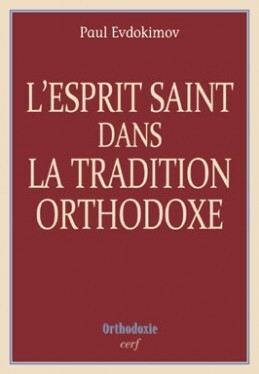- EAN13
- 9782204095235
- Éditeur
- Cerf
- Date de publication
- 24 mars 2011
- Collection
- BIB CERF
- Nombre de pages
- 111
- Dimensions
- 30,1 x 13,8 x 0,7 cm
- Poids
- 133 g
- Langue
- fre
L'Esprit Saint Dans La Tradition Orthodoxe
Paul Evdokimov
Cerf
Prix public : 15,00 €
En ce temps de détresse spirituelle, certains théologiens ne savent plus très bien ce qu'ils croient, ou, comme le disait Kierkegaard, " arrivent au point de ne plus savoir ce qu'est le christianisme ". L'intellectualisme, forcément abstrait, oublie la belle formule de saint Irénée pour qui la théologie est inséparable de l'Eucharistie, " coupe de la synthèse ". L'auteur fait un bilan de la pensée patristique en ce domaine, et invite l'Occident et l'Orient chrétiens à confronter la théologie des Pères de l'Église avec l'expérience eucharistique d'aujourd'hui ; il insiste en particulier sur la signification décisive de l'épiclèse, appel à l'Esprit pour qu'il opère la consécration eucharistique. Une nouvelle perspective s'ouvre alors pour une réflexion œcuménique ; les affrontements de jadis pourraient bien apparaître non plus contradictoires, mais complémentaires. -- In our age of spiritual poverty, some theologians no longer know what to believe in, or, as Kierkegaard said, "They have reached the point of no longer knowing what Christianity is'. Intellectualism, necessarily abstract, pays no heed to the beautiful expression of Saint Irenaeus, to whom theology was inseparable from the Eucharist, "the blending cup'. The author summarizes patristic thinking in this domain and invites the Christian East and West to confront the theology of the Fathers of the Church with the Eucharistic experience today; he especially insists on the conclusive signification of the epiclesis, the call to the Spirit, inviting the Eucharistic consecration. A new perspective for ecumenical reflection opens; what once appeared to be oppositions may no longer seem to be contradictory, but complementary.


















